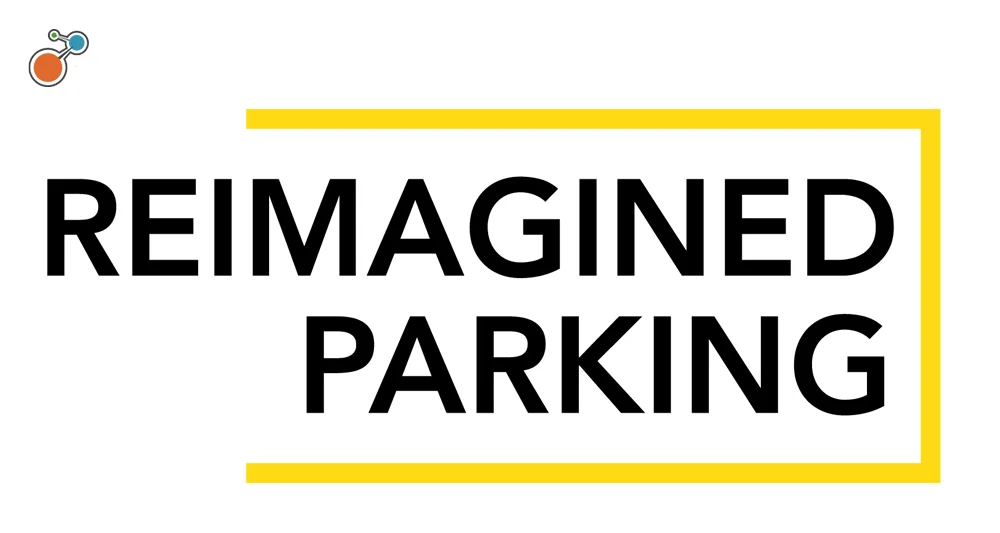Climate change describes A CHANGE IN GLOBAL TEMPERATURE AND WEATHER PATTERNS. These patterns are changing in unpredictable ways due to both natural and unnatural factors, such as human and industrial activities. According to the Intergovernmental Panel on Climate Change (IPCC), HUMAN INFLUENCE ON CLIMATE CHANGE HAS BEEN “INDISPUTABLE” FOR DECADES.
However, human activities also have the power to help stabilize the earth’s climate — and no organizations have more power than those in the business sector. It’s been shown that ONLY 90 COMPANIES ARE RESPONSIBLE FOR A LARGE PORTION OF YEARLY GREENHOUSE GAS EMISSIONS.
Individual business leaders can make a significant impact on climate change by understanding the biggest offenders in their own processes and working toward long-term solutions, rather than band-aid fixes. This guide will help business leaders understand the importance of integrating sustainable practices into their business models.
Why Climate Change Affects Business Owners
There are many ways climate change affects business owners and businesses directly. Firstly, climate change is a well-known fact and sustainable living has become popular among consumers. According to BusinessWire, MORE THAN A THIRD OF GLOBAL CONSUMERS ARE WILLING TO PAY MORE FOR SUSTAINABLE PRODUCTS. This indicates there is a large population of consumers who are actively seeking and prefer businesses that offer sustainable products.
Additionally, underdeveloped corporate policies may lead to costly governmental regulation in certain industries. For example, if your business isn’t in compliance with the RESOURCE CONSERVATION AND RECOVERY ACT (RCRA) for the disposal of hazardous and non-hazardous solid wastes, it could face hefty fines and even be shut down until a policy is put in place. This is just one example of how sustainable practices and regulations can affect business operations and revenue.
Understanding Corporate Climate Change Risks
Corporate risks caused by climate change are often poorly understood. It can be easy to take a stable climate for granted — however, according to the United Nations, with rising temperatures come increases IN NATURAL DISASTERS AND OTHER SUPPLY CHAIN DISRUPTIONS.
Understanding the risks that climate change poses to your business helps impart the importance of addressing climate change and integrating sustainability into your business practices. There are multiple ways that climate change can threaten your business, including operational risks, business risks, programmatic risks, as well as supplier and infrastructure risks.
Operational Risks
Operational risks due to climate change include things that could disrupt your supply chain or your daily business processes. Simply put, these risks include anything that will halt or complicate your operations.
Natural disasters, which are rising in frequency because of climate change, can cause BUSINESS CLOSURES AS WELL AS SUPPLY CHAIN DISRUPTIONS. For example, Hurricane Maria, which hit Puerto Rico in 2017, impacted the island’s ability to receive and ship goods and services, leaving two of its most important types of resources — medical devices and pharmaceuticals — in dangerously short supply.
By having a natural disaster preparedness plan, you can mitigate some of the disruptions to your business operations, such as damage or delay of materials.
Business Risks
Business risks related to climate change can disrupt your organization’s ability to do business. While all of these risks pose challenges to your business model, “business risk” is typically divided into two types: strategic and reputational risk.
Strategic risk is typically an oversight on the more strategic side of running a business in a time of climate change. There are SEVERAL DIFFERENT TYPES OF STRATEGIC RISKS, many of which can be exacerbated by climate change. For example, failure to implement a climate change policy or respond to market changes driven by climate change would be considered a strategic risk.
Reputational risk is more socially concerned, rather than process concerned. Your business’s reputation is an incredibly important part of marketing, as well as client acquisition and retention. A positive reputation can be a great boon — as much as a negative one can cause great harm. For example, public backlash as a result of company climate policy, or lack thereof, can result in loss of revenue, boycotting, and other unfavorable social outcomes that put your business at risk.
Programmatic Risk
Programmatic risk is defined as the risk associated with action or inaction from outside a project, over which the business leader or owner has no control, but may have a significant bearing on the business. As previously mentioned, not following climate change regulations can cause fines or shut-downs, which can impede your business operations.
Climate change continues to be a highly debated topic among governments and experts, meaning regulations may change rapidly. This is why it’s important to stay up-to-date on regulations in both your state and your country.
Supplier Risks
Phenomena caused by climate change, such as natural disasters, can also pose risks to your suppliers. Inability to ship, inventory loss issues, and material depletion are just a few ways that suppliers can be put at risk because of climate change. Many businesses can’t operate without the help of their suppliers, and vice versa, so it’s important to have a disaster plan in place with your suppliers.
As a business owner, using the type of risk analytics software deployed by insurance companies can help you and your suppliers anticipate and plan for any of these possible supply chain disruptions. However, positive climate action is a longer-term solution that can help reduce their likelihood altogether. This benefits suppliers, businesses, and consumers in the global economy.
Infrastructure Risks
Infrastructure risks are categorized as risks that climate change poses to your physical area or business building. The risk of uninhabitable business locales, extreme heat, cold, and flooding are all examples of infrastructure risks.
Because of this, it’s important to be prepared for local climate extremes and any physical damage these extremes may cause. Claims management software can help you analyze trends and even mitigate losses you face; alongside a natural disaster emergency plan, you can help ensure that your organization, your merchandise, as well as your employees and clients are all protected in the event of extreme weather. Investing in things like workers’ compensation and disaster insurance also helps protect your business from these threats.
Climate-friendly Corporate Action and Policies
Below, you can find some climate-friendly corporate actions and policies you may want to integrate into your business operations. These policies can not only help reduce your company’s emissions, but they can also provide a host of intrinsic benefits, including cost reduction and employee satisfaction. Some of these policies and actions include:
- Measure and analyze your greenhouse gas emissions: By measuring and analyzing your greenhouse gas emissions, you can discover problem areas, which can help you make meaningful, impactful cuts. This method will also help you determine areas or processes that can’t be changed — for example, shipping raw materials — or where you may be able to supplement other sustainable practices to offset emissions.
- Reduce energy consumption: One simple way to help your business operate more sustainably is to reduce your overall energy consumption. This can not only reduce your carbon footprint but can also help save you money on utilities. By switching to low-wattage bulbs, lowering thermostats by a few degrees, and using energy-efficient appliances, you can decrease emissions while increasing overhead savings.
- Invest in renewable energy solutions: Investing in renewable energy solutions can take many forms. You can invest company funds or stock into renewable energy as a commodity, as well as install things like solar panels on your business building(s). Both options can help improve your business’s long-term commitment to sustainability.
- Reduce waste: Reducing your waste output as a business can also help lower the amount of carbon and greenhouse gasses you produce. You can do this through simple changes, such as going paperless or getting a recycling bin. GOING PAPERLESS HAS MANY BENEFITS for businesses, not just the environment.
- Work with sustainable suppliers: Working with sustainable vendors is a great way to make your business more externally sustainable. Working with local vendors so you don’t have to ship overseas or working with vendors who are also committed to sustainability are both great options.
- Shorten supply lines to increase resilience: Shortened supply chains can not only increase supply-chain resilience but also improve sustainability. Businesses can shorten supply chains by purchasing domestic raw materials. This can reduce shipping times and circumvent environmental issues associated with shipping from far-off locations, such as natural disasters.
- Become a climate leader: One of the best ways to influence behavior as a business leader is by modeling the desired behavior. Becoming a climate leader means positioning yourself as a person who is knowledgeable about and committed to halting climate change. You can work to establish yourself as a climate leader by instigating and overseeing sustainability programs in your organization.
With the right planning, integrating these policies can be minimally invasive to your operations, which helps maximize their intrinsic and extrinsic benefits to your business.
Benefits of Climate-friendly Corporate Policies
Besides IMPROVING YOUR ENVIRONMENTAL HEALTH AND SAFETY, which benefits everyone on the planet, there are other benefits to implementing sustainable policies that are specific to owning and running a business. Some of these benefits include:
- Cost reduction: Sustainability practices can help reduce workplace expenses, including the cost of supplies, as well as utility costs. This is just another incentive for implementing sustainable practices.
- Brand reputation: Because climate change and sustainability have become so popular among consumers, sustainable business practices can be a boon to your brand reputation. This may help improve customer retention, as well as increase qualified leads.
- Competitive advantage: Because of the popularity of sustainability among consumers, being able to market your sustainable practices as part of your business can give you an advantage against competitors.
- Talent acquisition: Additionally, being a sustainable business can help you attract qualified talent. Younger generations, which are now entering the workforce, are more WILLING TO BE PAID LESS TO WORK FOR SUSTAINABLE DEVELOPMENT GOAL (SDG)-MINDED COMPANIES. Sustainable companies may also see AN INCREASE IN RETENTION among employees who want to work for an organization that shares their values.
- Government rebates and incentives: You may be able to take advantage of the many government rebates and incentives for certain sustainability moves. For example, MANY INCENTIVES EXIST FOR THE INSTALLATION OF SOLAR PANELS, both residential and commercial.
- Investor confidence: As attitudes towards sustainability continue to trend, investing in and implementing sustainable programs can help your company increase investor confidence. Because the above benefits can help strengthen your organization, sustainability efforts are something business leaders can confidently present to investors as a part of their growth reports.
Further Reading
Below you can find further reading and resources, both about climate change and being a climate-forward business. These resources can help you further your knowledge of climate change and empower you to foster change as a business leader. You can also search for more information through organizations that are leading the charge against climate change, such as the ENVIRONMENTAL PROTECTION AGENCY (EPA).
Information on Climate Change
Becoming educated is the first step to enacting meaningful change in your business. Here is a collection of articles from which you can learn more about climate change, and the interplay between climate change and business:
- NASA: “IS IT TOO LATE TO PREVENT CLIMATE CHANGE?”;
- FORBES: “ORGANIZATIONS ARE FEELING THE PAIN OF CLIMATE CHANGE: HERE ARE FIVE WAYS IT’S AFFECTING THEIR BUSINESS”;
- HARVARD BUSINESS REVIEW: “CLIMATE BUSINESS | BUSINESS CLIMATE”;
- UNITED NATIONS HUMAN RIGHTS OFFICE OF THE HIGH COMMISSIONER: “HUMAN RIGHTS, CLIMATE CHANGE AND BUSINESS”.
Sustainable Business Organizations
Here are some business organizations that are dedicated to creating sustainable business practices. Engaging with these organizations can help solidify your business’s sustainable status, as well as provide you with resources for further climate-friendly action.
- AMERICAN SUSTAINABLE BUSINESS NETWORK;
- NETWORK FOR BUSINESS SUSTAINABILITY;
- BUSINESS FOR SOCIAL RESPONSIBILITY;
- UN GLOBAL IMPACT.
Some of these organizations may have requirements for membership, such as proof of certain climate commitments or annual dues that need to be paid. Additionally, there may be local business organizations in your area you can join — or even create — that may have fewer barriers to entry.
Creating more sustainable practices in your business is beneficial to the planet, your organization, and your employees. Easy, cost-effective, eco-friendly switches can have a huge impact on both the operational and strategic sides of your business. As we look toward the future of climate change, more and more experts are citing SUSTAINABILITY NOT JUST AS AN OF-THE-MOMENT TREND, BUT AS A LONG-TERM COMMITMENT. Therefore, transforming your business model into something more eco-friendly can have tangible benefits for the entire life of your business.




